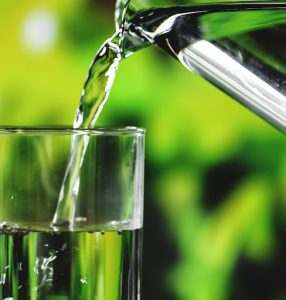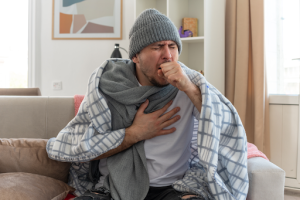Disclaimer:
This article is for information purposes only. It is not a substitute for medical advice or treatment. Seek medical care for your treatment.
What is dehydration?
Dehydration happens when you consume or lose more fluid than you take in and your body doesn’t have as much water as it requires for executing normal functions. If you don’t restore lost fluids, you will get dehydrated. You can have mild to severe dehydration relying on how much fluid is absent from your body.
Dehydration can happen to anyone but it can be perilous for children and older people. Acute diarrhea and vomiting is the most known cause of dehydration in young children. Generally older people have lower water content in their bodies and may have certain health conditions or they take proper medications that raise the risk of dehydration. This means that slight illnesses, lung or bladder infections can lead to dehydration in older adults. Dehydration occurs if you don’t drink ample water during hot, scorching weather especially during extensive workouts. You can inverse moderate dehydration but acute dehydration needs prompt medical attention.
Effects of dehydration on your body:
How dehydration affects your brain?
Acute dehydration lessens the blood vessels in the brain. Insufficient fluid levels in your brain deteriorate your memory and coordination.
How dehydration affects your heart?
Less water level in your blood forces heart to work persistently.
How dehydration affects your kidneys?
In a day an average person urinates probably, 6-7 times. But you may urinate less if you are dehydrated. This is the result of less water in your blood that causes your kidneys to hold your urine for longer.
3 levels of dehydration:
Dehydration can be classified as:
- Mild:
You have to orally take plenty of fluids. Drink water, but substitute fluids with a drink that has electrolytes if you encounter notable sweating or loss of fluids from vomiting and diarrhea.
- Moderate:
Moderate dehydration needs Intravenous hydration. You will get this in an emergency room or urgent care.
- Severe:
You need a proper doctor if your signs of dehydration are acute. Immediately go to an emergency room.
Your doctor will decide about your level of dehydration and will treat you accordingly.
Symptoms of dehydration:
Thirst or dry mouth is not a certain early symptom of dehydration. Many people actually don’t feel thirsty until they are dehydrated. That is why one should always give importance to drinking water throughout the day, irrespective of the weather. When an Infant or a child will dehydrate they will have dry mouth, no wet diapers for 3 hours, sunken eyes, lips and cheeks and irritability. Whereas, adults in dehydration will feel extreme thirst, less frequent dark coloured urination, dizziness, fatigue, and light headedness.
Signs of mild dehydration are:
- Thirst
- Dry mouth
- Not urinating much
- Dark yellow urine
- Dry skin
- Headache
- Muscle pain
Signs of acute dehydration are:
- Not urinating often and having dark yellow pee
- Very dry and rough skin
- Flushed skin
- Swollen feet
- Constipation
- Feeling light-headed
- Fast heartbeat
- Rapid and irregular breathing
- Enopthalmos (sunken eyes)
- Sleepiness, feebleness and feeling irritated
- To pass out
Causes of dehydration:
Sometimes Causes of dehydration are simple for instance, when you don’t drink plenty of water because you are sick or preoccupied with your work or safe drinking water is not available when you are hiking, travelling or camping. In our day to day routine it’s normal to lose water from your body through perspiration, breathing, peeing, pooping, tears and saliva. Generally we restore the lost liquid by drinking fluids, consuming food with water content. If you lose plenty of water and don’t drink or eat enough, you will get dehydrated.
Some of the causes of dehydration are:
- Diarrhea and vomiting:
Acute diarrhea that occurs abruptly and violently can cause huge loss of water and electrolytes in short amount of time. You lose more fluids and minerals if you have vomiting followed by diarrhea.
- Fever:
Generally if you have high fever you are more likely to become dehydrated. This condition becomes unfavorable if you have fever in addition to diarrhea and vomiting.
- Extreme sweating:
Sweating makes you lose your body water. You become dehydrated, if you don’t replace fluids as you proceed. Weather changes like in hot weather you sweat more and lose more body fluid.
- Frequent urination:
Frequent urination can be the result of unrestrained and undiagnosed diabetes. Some medications like diuretics and some blood pressure pills can cause dehydration, because they make you urinate more often.
One can drink more water than normal if you:
- Fever
- Diarrhea
- Vomiting
- Intense sweating
- Urinating frequently
Sometimes you can’t restore the water you lose because:
- You are engrossed in certain things and you forget to drink plenty of water.
- You don’t figure out that you are thirsty.
- You are unable to drink because you have sore throat or mouth sores.
How to drink more water?
<a href=”https://www.freepik.com/free-photo/beautiful-girl-sport-clothes-drinking-water-after-workout-while-sitting-grass_3339103.htm#query=dehydration&position=1&from_view=search&track=sph”>Image by freepic.diller</a> on Freepik
- Firstly, buy a nice water bottle and carry it around everywhere.
- Go for water instead of sugary drinks.
- If you find it hard to frequently drink water then add some flavor. A lemon can make it tastier.
- You can consume foods with plenty of water content for example, soups, fruits and certain vegetables.
- You can try smaller doses throughout the day if you don’t want to drink plenty of water at once.




